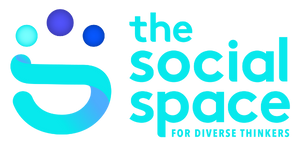Neuroact stress management course

NEUROACT® was developed for autistic and neurodivergent individuals who experience stress and anxiety. It addresses common difficulties such as sensory overload, emotional dysregulation, bodily unawareness, unfamiliar situations, and social overwhelm.
Grounded in ACT and neuropsychology, the program blends psychoeducation with practical stress management therapy tools to reduce avoidance behaviours and increase meaningful participation.
Sessions are adapted for neurodiverse learners using visual supports, simple writing exercises, mindfulness strategies, and experiential learning. Each session combines theory with hands-on practice, helping participants build skills that transfer into everyday life at school, work, and in relationships.
Skills Covered
Participants will learn how to
Emotional Awareness
- Identify stressful situations and avoidance behaviours
- Develop focus, attention, and perspective-taking skills
Mindfulness Skills
- Manage emotions, sensory challenges, and body responses
- Strengthen resilience, self-care, and long-term planning
- Build psychological flexibility—the ability to manage thoughts and feelings while taking positive action
Values and Direction
- Set meaningful goals aligned with personal values
- Improve social participation and communication
Participation Requirements
This program is best suited for:
- Adolescents, young adults, and adults (teens–35+)
- Individuals with autism spectrum disorder, ADHD, or related neurodivergent profiles
- Participants motivated to attend regularly and practice skills between sessions
- Those experiencing daily stress from sensory overload, social demands, or emotional dysregulation
Why It Matters
For many autistic and neurodivergent individuals, unmanaged stress limits independence, relationships, and quality of life. Without effective coping strategies, avoidance behaviours often worsen, increasing isolation and anxiety.
NEUROACT® provides a structured, scientifically tested approach to stress management therapy in Sydney. By focusing on resilience, values, and practical coping tools, participants can move beyond avoidance and engage more meaningfully in education, work, relationships, and community life.
Proven Results
NEUROACT® has been evaluated in multiple research trials at the Karolinska Institute:
- Adolescent school-based trial: Reduced stress, anger, depression, hyperactivity, and inattention; improved prosocial behaviours (Pahnke et al., 2014).
- Adult outpatient pilot: Reduced stress and depression; improved quality of life, flexibility, and social ability (Pahnke et al., 2019).
- Adult randomised controlled trial: Significant improvements in stress reduction, quality of life, avoidance behaviours, sleep quality, and social motivation (Pahnke et al., 2022).
These findings confirm NEUROACT® as a valuable, evidence-based therapy for autism, ADHD, and stress management in Sydney.
Participation Requirements
This program is best suited for:
- Adolescents, young adults, and adults (teens–35+)
- Individuals with autism spectrum disorder, ADHD, or related neurodivergent profiles
- Participants motivated to attend regularly and practice skills between sessions
- Those experiencing daily stress from sensory overload, social demands, or emotional dysregulation
Why It Matters
For many autistic and neurodivergent individuals, unmanaged stress limits independence, relationships, and quality of life. Without effective coping strategies, avoidance behaviours often worsen, increasing isolation and anxiety.
NEUROACT® provides a structured, scientifically tested approach to stress management therapy in Sydney. By focusing on resilience, values, and practical coping tools, participants can move beyond avoidance and engage more meaningfully in education, work, relationships, and community life.
Proven Results
NEUROACT® has been evaluated in multiple research trials at the Karolinska Institute:
- Adolescent school-based trial: Reduced stress, anger, depression, hyperactivity, and inattention; improved prosocial behaviours (Pahnke et al., 2014).
- Adult outpatient pilot: Reduced stress and depression; improved quality of life, flexibility, and social ability (Pahnke et al., 2019).
- Adult randomised controlled trial: Significant improvements in stress reduction, quality of life, avoidance behaviours, sleep quality, and social motivation (Pahnke et al., 2022).
These findings confirm NEUROACT® as a valuable, evidence-based therapy for autism, ADHD, and stress management in Sydney.
Skills Covered
Participants will learn how to
- Identify stressful situations and avoidance behaviours
- Develop focus, attention, and perspective-taking skills
- Set meaningful goals aligned with personal values
- Manage emotions, sensory challenges, and body responses
- Improve social participation and communication
- Strengthen resilience, self-care, and long-term planning
- Build psychological flexibility—the ability to manage thoughts and feelings while taking positive action
Program Structure
Duration
10 weeks
Format
Weekly 90 minute Sessions
Activities
Structured activities that combining discussion, role-plays, mindfulness and experiential exercises.
Parent/Carer Involvement
Client based learning
How Can I Apply to Participate?
We’d love to welcome you into the NEUROACT® program at our Mascot psychology clinic.
Book an initial consultation with our psychologists to confirm whether NEUROACT® is the right fit for you.
